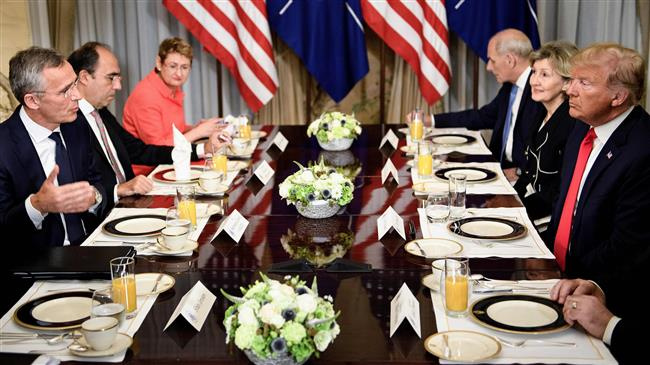Can US-EU Tensions Provide a Breathing Space for Iran?

IRD: We have seen a rise in Berlin-Washington tensions in the recent weeks. The points of conflict range from trade differences (e.g. tariffs) to political issues (NATO, Iran nuclear deal). How do you describe the current state of affairs between Germany and the US?
PI: The tensions have been on the rise since Donald Trump came to power in 2017. The two countries are leading economic powerhouses: Germany is the strongest economy in the European Union and the de factor leader of the EU. And the United States is the world’s strongest military and economic force. A face-off between these two countries can have strong ramifications for the international community. In the recent NATO summit, Trump has been particularly critical of Germany’s underspending for NATO expenses, considering Berlin’s economic might, and its extensive energy ties with Russia. Germany’s decision to double its share in NATO expenditures to 4 percent has failed to satisfy Trump. Trump’s threat to increase tariffs on EU-manufactured automobiles will undermine Germany’s dominant car industry. The current rift between Berlin and Washington has been unprecedented since WWII.
IRD: Can Merkel withstand Trump, considering her fragile domestic situation and the uneasy alliance of her cabinet?
PI: The challenges with the Christian Social Union over the asylum-seekers have generated tension, and even raised the specter of a breakup of Merkel’s cabinet. The German chancellor is mired in trouble, so her maneuverability against Donald Trump pressures is not strong. Merkel may decide to follow a cautious line against Washington in the upcoming months to weather the current precarious situation. In the meantime, Trump is seeking to undermine the European Union and establish relations with its members individually. His strategy might be aiming to weaken the European Union and its united voice in the light of a possible trade war in the future.
IRD: Some observers believe that the stronger tensions between Washington and the European Union, the higher the chances of Tehran-Brussels cooperation as the deadline for snapback of US sanctions against Iran looms. Do you subscribe to a similar analysis?
PI: This prediction is largely true. The more the tensions between the United States and the European Union, the higher the chances that Brussels backs up Iran. While the economic benefits of the nuclear deal could bring Iran and the EU closer, private European companies and banks are wary of cooperating with Iranian counterparts and EU can hardly help Iran in that aspect. But Tehran and Brussels can experience political proximity if tensions between the EU and US become sharper.
* This piece is an abridged version of the original interview published in Iranian Diplomacy Persian Service. Pirouz Izadi is an expert in European Affairs.

